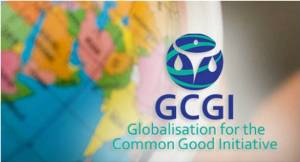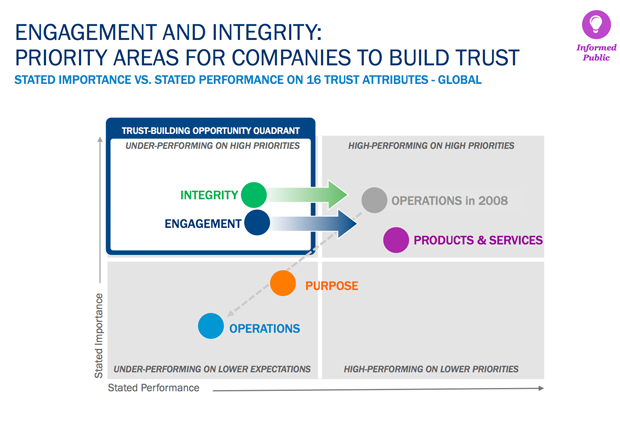World Economic Forum Annual Meeting 2015
Davos-Klosters, Switzerland 21 - 24 January 2015
Photo: reutersmedia.net
Prof. Klaus Schwab,
Founder and Executive Chairman,
World Economic Forum,
Geneva, Switzerland
Dear Prof. Schwab,
I notice that you hope the 2015 WEF meeting will be a “starting point for a renaissance of global trust”. This is a noble aim, very important and timely. Thus, as the Founder of Globalisation for the Common Good Initiative (GCGI) I wish to endorse and support you in this aim.
Today in many parts of the world, the so-called market, and the values of consumerism, underpinned by the “Black Friday” values, have become increasingly dominant and are now seriously threatening our global future, both in terms of our care of the planet and in increasing societal rivarly and conflict.
In the process we have lost trust in everything. This is why I believe your aim is so important. In the global society in which we now all live, it is essential for our common survival and wellbeing that we build cultures of trust, being prepared to take risks for the common good.
Trust surely comes from the experience of a relationship - an in-depth experience - which by its nature is rooted in values that are not necessarily economic or monetary.
At the basis of such trust is an understanding that, in spite of our differences, we have our humanity in common. Archbishop Desmond Tutu speaks of ‘that African thing, Ubuntu’ – the notion that a person is only a person through other persons. A person with ‘Ubuntu’ is open and available to others; all others, for we are incomplete without each other. Ubuntu echoes the insight of John Donne, that ‘No man is an island ….. I am involved in mankind’, and that was in the seventeenth century, long before globalisation and the Davos Forum.
Having said that, I firmly believe that if you truly wish to bring about an environment of trust between the 99% who have never come to Davos and the top 1% that always do, then, it is important to sincerely ask why there exists such a high level of mistrust beween the two?
For me the answer lies in the fact that the 1%, over the many decades now, have to a very large extent, been focused on the economic/monetary values of life, at the exclusion and expense of other equally or indeed more important values that make us truly human and trustworthy.
At Davos and other economic forums the emphasis has always been on economic liberalisation, de-regulation, marketisation, privatisation, competition, free trade, shareholder values, bonuses and more. All concerning economic activities and nothing more. This, neoliberal agenda, I put it to you, is the reason for mistrust.
Thus, if the aim is serious to build trust, then, a different path is required. A path with a different values which are not exclusively economic and monetary.
Allow me to offer such a path:
If we want to realise any goals, including building trust, we must begin, first and foremost, by focusing on some fundamental and enduring questions of human meaning and value. Questions such as:
1. What does it mean to be human?
2. What does it mean to live a life of meaning and purpose?
3. What does it mean to understand and appreciate the natural world?
4. What does it mean to forge a more just society for the common good?
5. What is the purpose of this journey we call life?
By their very nature, these questions lend themselves to thought and discussion around spirituality, ethics, morals and values.
Thus, we must, once again, begin to appreciate the significance of the value of values in all we do, as without life-affirming values, no strong and lasting foundations can be built.
“Values represent our guiding principles: our broadest motivations, influencing the attitudes we hold and how we act.”
‘Try not to become a man of success, but a man of value.’ - Albert Einstein
As it has been observed throughout history, in action and thought, people are affected by a wide range of influences. Past experience, cultural and social norms are some of the most important ones. Connected to all of these, to some extent, are our values, which represent a strong guiding force, shaping our attitudes and behaviour over the course of our lives. Our values have been shown to influence our political persuasions; our willingness to participate in political action; our career choices; our ecological footprints; how much money we spend, and on what; and our feelings of personal wellbeing, contentment and happiness; as well as our relationship with others, with nature and Mother Earth, to mention but a few.
I do hope that this year at Davos, given your stated aim, the delegates will carefully consider the relevance of values to build a better and more trustworthy world.
To focus their minds, assisting them to a more fruitful dialogue, I very much wish to offer them the values of the GCGI, which we hold very dearly, for their consideration and reflection.
I firmly believe that if these or similar values are adopted at the Davos forum and then seriously adhered to afterwards, your aim of building a trustworthy global relationship and more will be achieved.
We value caring and kindness
We value passion and positive energy
We value service and volunteerism
We value simplicity and humility
We value trust, openness, and transparency
We value values-led education
We value harmony with nature
We value non-violent conflict resolution
We value interfaith, inter-civilisational and inter-generational dialogue
We value teamwork and collaboration
We value challenge and excellence
We value fun and play
We value curiosity and innovation
We value health and wellbeing
We value a sense of adventure
We value people, communities and cultures
We value friendship, cooperation and responsibility
The future is full of risk and perils for our planet and all peoples. If we are to survive we must surely build cultures of trust, and we must walk together to face the future. The journey, for sure, will be much more secure and fruitful if we begin to trust each other again.
I do hope that you find my letter of some value and I wish you and your delegates a very fruitful and rewarding debate, deliberation and discussion. I hope Davos becomes a beacon of hope for the common good, ensuring that the top 1% have learnt the lessons of the crash of September 2008.
Yours,
Prof. Kamran Mofid, Founder, Globalisation for the Common Good Initiative (GCGI)

Building Trust: A Perspective from Edelman
“For companies looking to build or restore trust in themselves and in their innovations, the 2015 Edelman Trust Barometer offers actionable insights on the attributes and behaviors that shape trust.
Trust is built through specific attributes, which can be organized into five performance clusters: integrity, engagement, products and services, purpose and operations.
Of these clusters, the Trust Barometer reveals that integrity is most important, followed closely by engagement. As in years past, areas such as excellence in operations or products and services, while important, are simply what is expected.
The trust-building opportunity for business, therefore, lies squarely in the area of integrity and engagement. These areas encompass actions such as having ethical business functions, taking responsibility to address issues or crises, having transparent and open business practices, listening to customer needs and feedback, treating employees well, placing customers ahead of profit and communicating frequently on the state of the business — the very qualities also evidenced to build trust in innovation.”

Read more:
